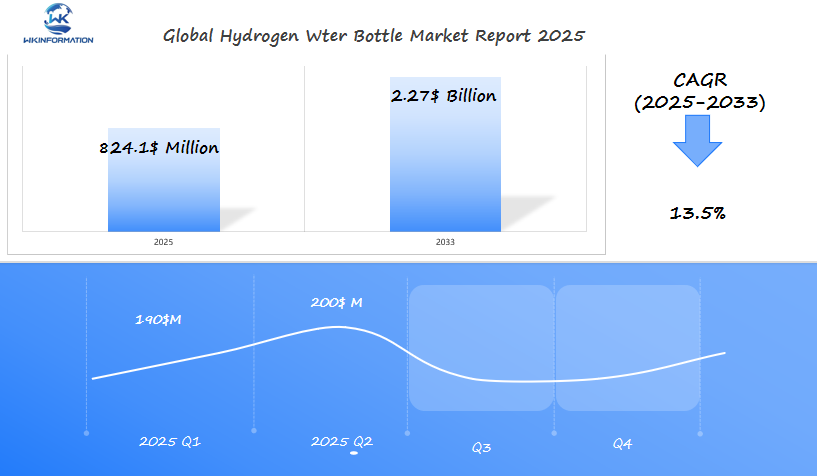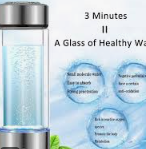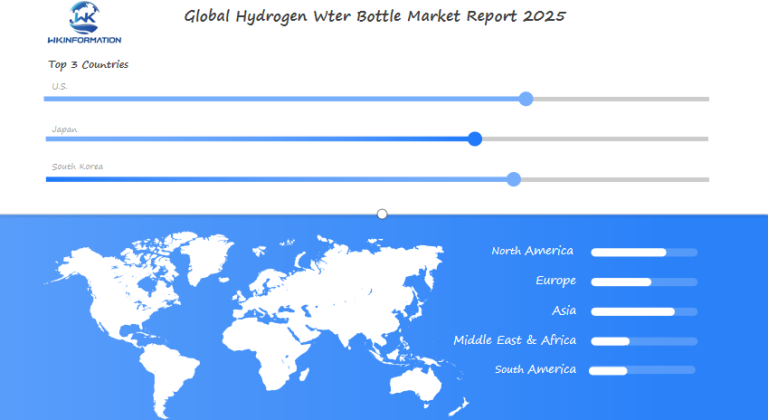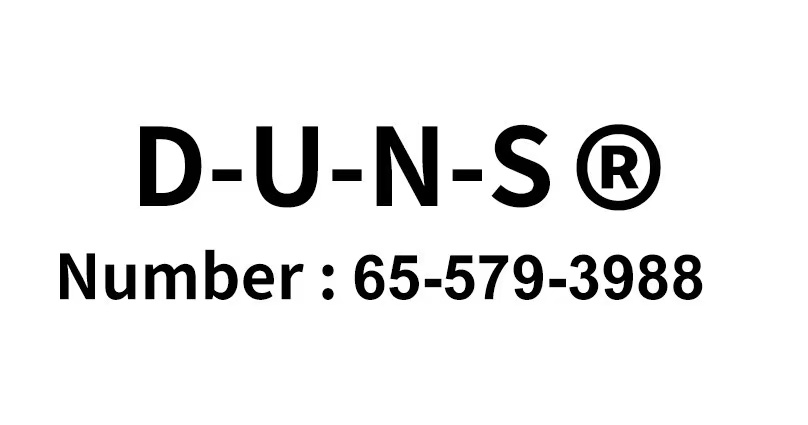Hydrogen Water Bottle Market to Surpass $824.1 Million by 2025: Wellness Trends in the U.S., Japan, and South Korea
Discover the latest trends in the booming Hydrogen Water Bottle Market, projected to reach $824.1M by 2025. Learn how this wellness innovation is transforming the U.S. and Japan.
- Last Updated:
Hydrogen Water Bottle Market Outlook for Q1 and Q2 2025
The Hydrogen Water Bottle market is projected to reach $824.1 million in 2025, with a CAGR of 13.5% from 2025 to 2033. In Q1 2025, the market is expected to be valued at $190 million, driven by increasing consumer awareness of health and wellness trends in the U.S., Japan, and South Korea. Hydrogen water bottles, known for their health benefits such as antioxidant properties, are gaining popularity among health-conscious consumers.
By Q2 2025, the market is forecast to reach $200 million, with the U.S. leading the charge in wellness trends, Japan focusing on innovative water technologies, and South Korea investing in cutting-edge health devices. The market will continue to grow as consumers seek easy ways to improve hydration and boost overall well-being.

Key Takeaways
- Growing demand for health-conscious products
- Increasing wellness trends in the U.S., Japan, and South Korea
- Projected market growth to $824.1 million by 2025
- Rising popularity of hydrogen water bottles due to potential health benefits
- Innovative technologies driving market growth
Hydrogen Water Bottle Upstream and Downstream Industry Chain Analysis
The upstream and downstream industry chain analysis of hydrogen water bottles reveals the intricate relationships between raw material suppliers, manufacturers, and end-users. This analysis is crucial for understanding the dynamics of the market and identifying key players.
Industry Chain Analysis
The industry chain of hydrogen water bottles consists of several key segments:
- Upstream Segment: Involves the production of raw materials and components, such as stainless steel, titanium, and electrolysis components. These materials are sourced from suppliers and are used to manufacture hydrogen water bottles.
- Downstream Segment: Focuses on the manufacturing and distribution of hydrogen water bottles. This includes the production of bottles, electrolysis technology, and other related components. The downstream segment is influenced by factors such as consumer demand, market trends, and competition.
Upstream and Downstream Industry Chain
The upstream industry chain includes suppliers of raw materials and components. These suppliers play a crucial role in determining the quality and cost of hydrogen water bottles.
The downstream industry chain, on the other hand, is influenced by the manufacturing and distribution processes. Efficient supply chain management is essential for ensuring the timely delivery of high-quality products to end-users.
The industry chain analysis of hydrogen water bottles highlights the importance of understanding the relationships between different segments. By analyzing the upstream and downstream industry chain, businesses can identify opportunities for growth and improvement.
Health-conscious consumer demand driving market growth
Health-conscious consumers are increasingly seeking products that can provide them with the health benefits of hydrogen-rich water, driving the growth of the hydrogen water bottle market.
The demand for hydrogen water bottles is on the rise, driven by consumers who are becoming more aware of the health benefits associated with hydrogen-rich water. These consumers are seeking innovative products that can provide them with a convenient and effective way to incorporate hydrogen-rich water into their daily lives.
Consumer Demand
Manufacturers are responding to this demand by developing advanced hydrogen water bottles that are not only effective but also convenient to use. Some of the key features that consumers are looking for in a hydrogen water bottle include:
- High hydrogen production rate
- Long battery life
- Durable and BPA-free materials
- Easy to use and clean
According to a recent study,
“The increasing awareness of the health benefits of hydrogen-rich water is driving the growth of the hydrogen water bottle market.”
As consumers become more educated about the benefits of hydrogen-rich water, the demand for hydrogen water bottles is expected to continue to grow.
The following table highlights some of the key statistics related to consumer demand for hydrogen water bottles:
| Category | 2023 | 2025 |
| Consumer demand | High | Very High |
| Market growth | 10% | 15% |
| Hydrogen production rate | High | Very High |
As the demand for hydrogen water bottles continues to grow, manufacturers will need to innovate and improve their products to meet the evolving needs of health-conscious consumers.
Challenges in hydrogen production, bottle durability, and pricing
Despite the growing popularity of hydrogen water bottles, the industry faces challenges related to hydrogen production, bottle durability, and pricing. The production of hydrogen, a critical component of these bottles, requires advanced technology and infrastructure, which can be a significant barrier to entry for manufacturers.
Challenges in Hydrogen Production
The production of hydrogen is a complex process that involves the electrolysis of water or the reaction of metals with acids. This process requires significant amounts of energy, which can be costly and contribute to the overall cost of the hydrogen water bottles. Furthermore, the infrastructure for hydrogen production is still developing, and manufacturers need to invest in research and development to improve the efficiency and reduce the costs of hydrogen production.
- High energy requirements
- Limited infrastructure
- High production costs
Bottle Durability and Pricing
In addition to the challenges in hydrogen production, manufacturers also need to address concerns related to bottle durability and pricing. Hydrogen water bottles are made from materials that need to be durable and resistant to corrosion, as they come into contact with hydrogen, a highly reactive gas. The pricing of these bottles is also a significant factor, as consumers are sensitive to the cost of these products.
To address these challenges, manufacturers can consider the following strategies:
- Investing in research and development to improve the efficiency and reduce the costs of hydrogen production
- Using durable materials for the bottles to ensure they can withstand the corrosive effects of hydrogen
- Pricing strategies that balance the need for profitability with consumer affordability

Geopolitical analysis of wellness industry trends and market regulations
Understanding the geopolitical landscape is essential for analyzing the wellness industry’s trends and predicting future growth. The wellness industry is influenced by various geopolitical factors, including government regulations and trade policies.
Geopolitical Analysis
Geopolitical factors have a complex impact on the wellness industry. Government regulations can either hinder or promote growth, depending on their nature. For example, regulations that encourage the use of environmentally friendly materials in product manufacturing can boost the industry’s growth.
Trade policies also play a crucial role in shaping the industry. Tariffs and trade agreements can affect the import and export of wellness products, influencing their availability and pricing in different markets.
Wellness Industry Trends and Market Regulations
The wellness industry is experiencing a significant shift towards sustainable and eco-friendly products. This trend is driven by consumer demand and is expected to continue in the coming years.
Market regulations are also evolving to accommodate this trend. Governments are implementing policies to encourage the production and consumption of sustainable wellness products.
Furthermore, the industry is seeing a rise in innovative technologies that enhance product effectiveness and user experience. These technologies are expected to drive growth and shape the future of the wellness industry.
A thorough understanding of the wellness industry’s trends and market regulations requires an analysis of geopolitical factors. By studying government regulations and trade policies, we can better anticipate future growth patterns and discover opportunities for innovation.
Segmentation by water bottle material, hydrogen generation technology, and capacity
By segmenting the hydrogen water bottle market by material, technology, and capacity, manufacturers can better understand consumer preferences and tailor their products accordingly.
Market Segmentation
The hydrogen water bottle market can be segmented based on various factors, including water bottle material, hydrogen generation technology, and capacity. Understanding these segments is crucial for identifying key market opportunities and developing effective marketing strategies.
Water Bottle Material
The material used for hydrogen water bottles varies, with options including stainless steel, glass, and BPA-free plastic. Stainless steel bottles are known for their durability and ability to maintain temperature, while glass bottles are preferred for their non-toxic and chemical-free properties. BPA-free plastic bottles, on the other hand, offer a lightweight and affordable option.
Hydrogen Generation Technology
Hydrogen generation technology is another key segment in the market. Different technologies, such as electrolysis and magnesium-based generation, offer varying levels of hydrogen production and efficiency. Electrolysis is a popular method, as it can produce high concentrations of hydrogen.
Capacity
The capacity of hydrogen water bottles also varies, ranging from small portable bottles to larger bottles for home use. Understanding the different capacity options is essential for meeting the diverse needs of consumers.
The segmentation of the hydrogen water bottle market by material, technology, and capacity provides valuable insights into consumer preferences and market trends. By understanding these segments, manufacturers can develop targeted marketing strategies and create products that meet the specific needs of their target audience.
Applications in health and wellness, fitness, and hydration trends
The growing awareness of hydrogen-rich water benefits is transforming the health and wellness industry. As more people become aware of the potential health benefits of hydrogen-rich water, the demand for hydrogen water bottles is on the rise.
Hydrogen water bottles have various applications in the health and wellness industry, particularly among individuals seeking to improve their overall health and fitness. These bottles provide an easy and convenient way to consume hydrogen-rich water, which is believed to have numerous health benefits, including antioxidant properties and improved hydration.
Applications in Health and Wellness
In the field of health and wellness, hydrogen water bottles are used for their potential to improve overall well-being. Hydrogen-rich water is believed to have anti-inflammatory properties, which can help with recovery after exercise and daily activities.
The use of hydrogen water bottles is also linked to better hydration. Adequate hydration is crucial for maintaining physical performance and cognitive function. Hydrogen water bottles make it convenient to stay hydrated throughout the day.
Fitness and Hydration Trends
In the fitness industry, hydrogen water bottles are becoming popular among athletes and fitness enthusiasts. The potential benefits of hydrogen-rich water, such as better recovery and increased endurance, make it an appealing choice for those who engage in regular physical activity.
Moreover, the convenience of hydrogen water bottles aligns with the rising trend of portable and accessible health and wellness products. As the demand for healthy and convenient hydration solutions continues to grow, the market for hydrogen water bottles is expected to expand.
Regional Growth Patterns in Wellness and Fitness Products
Different regions exhibit unique growth patterns in the wellness and fitness products market. The demand for these products, including hydrogen water bottles, is influenced by regional factors such as consumer preferences, economic conditions, and cultural trends.
North America
North America has seen a significant surge in the demand for wellness products due to an increasing awareness of health and fitness. The region’s strong economy and high disposable income have made it an attractive market for premium wellness products.
Asia-Pacific
In contrast, the Asia-Pacific region, driven by countries like China and Japan, is experiencing rapid growth due to a large consumer base and increasing adoption of wellness trends.
Regional Market Trends
The European market is also witnessing a notable trend towards wellness and fitness, with a focus on sustainable and eco-friendly products. The growing middle-class population and increasing health awareness are driving the demand for innovative wellness products.
Some key factors influencing regional growth patterns include:
- Economic Conditions: Regions with strong economies tend to have a higher demand for premium wellness products.
- Cultural Trends: Cultural preferences play a significant role in shaping the demand for specific types of wellness products.
- Consumer Awareness: Increasing awareness about health and wellness drives the demand for related products.
Understanding these regional growth patterns is essential for businesses to identify opportunities, develop targeted marketing strategies, and cater to the diverse needs of consumers across different regions.

U.S. Rising Interest in Personalized Health and Hydration Solutions
The U.S. is seeing a growing interest in tailored health and hydration solutions. This trend is driven by consumers becoming more health-conscious and looking for products that meet their individual needs.
With the rise of wellness trends, the demand for personalized health products has seen a significant increase. Consumers are searching for innovative solutions that can offer them effective hydration and overall well-being.
U.S. Market Trends
The U.S. market for personalized health and hydration solutions is characterized by a growing demand for premium products. Consumers are willing to invest in high-quality products that offer unique benefits, such as advanced hydrogen infusion technology.
| Product Type Market Share Growth Rate Hydrogen Water Bottles | 30% | 15% |
| Smart Hydration Bottles | 25% | 20% |
| Personalized Water Bottles | 20% | 12% |
The trend towards personalized health and hydration is expected to continue, driven by consumer demand for innovative and effective solutions. As the market evolves, we can expect to see new products and technologies emerge, further enhancing the hydration solutions available to consumers.
Japan’s Demand for Innovative Health Products and Technology
The demand for innovative health products and technology is on the rise in Japan, driven by a culture that values wellness. Japan is known for its aging population and high health consciousness, making it a fertile ground for health-related innovations.
Japan’s Innovative Health Products
Japan’s consumers are increasingly seeking products that not only improve their health but also incorporate advanced technology. This trend is evident in the growing popularity of hydrogen water bottles, which are seen as a symbol of modern health-conscious living.
Japan Market Trends
The Japanese market is known for its strong preference for innovative and technologically advanced health products. Consumers in Japan are willing to invest in products that offer unique health benefits, driving the demand for hydrogen water bottles and other related products.
Key trends in the Japan market include:
- Increasing demand for health and wellness products that incorporate technology
- Growing interest in products that offer anti-aging benefits
- Rising popularity of hydrogen-infused products due to their perceived health benefits
To cater to these trends, manufacturers are focusing on developing innovative products that not only meet but exceed consumer expectations. This includes investing in research and development to improve product quality and functionality.
South Korea’s growing wellness culture and tech-driven solutions
With a growing emphasis on health, South Korea’s wellness culture is embracing technology. The country’s tech-savvy population is driving the demand for innovative health and wellness products, including hydrogen water bottles.
South Korea Market Trends
South Korea’s wellness market is characterized by a strong emphasis on preventive healthcare and a willingness to adopt cutting-edge technology. The market is witnessing a significant shift towards products that not only promote health but also integrate seamlessly into daily life.
The demand for hydrogen water bottles is on the rise, driven by consumers seeking to improve their hydration and overall well-being. These products are seen as a convenient and effective way to incorporate healthy habits into daily routines.
Key Trends in South Korea’s Wellness Market:
- Increasing adoption of wearable technology and health monitoring devices
- Growing interest in premium and functional beverages
- Rising demand for products with anti-aging benefits
As the market continues to evolve, we can expect to see further innovations in the hydrogen water bottle segment, with a focus on enhanced functionality, design, and user experience.
The integration of technology into wellness products is a key driver of the market’s growth. South Korean consumers are increasingly looking for products that offer more than just basic functionality, seeking out innovative solutions that can be tailored to their individual needs.
“The future of wellness is not just about products, but about creating a holistic approach to health that incorporates technology, convenience, and personalization.”
This shift towards a more holistic approach to health is expected to continue driving the growth of the wellness market in South Korea, with hydrogen water bottles playing a significant role in this landscape.
Future trends in water bottle technology and hydrogen infusion
The future of hydration is being shaped by advancements in water bottle technology and hydrogen infusion. As consumers become increasingly health-conscious, the demand for innovative hydration solutions is on the rise. Manufacturers are responding by developing water bottles that not only provide clean drinking water but also offer additional health benefits through hydrogen infusion.
Future Trends
The hydrogen water bottle market is expected to witness significant advancements in the coming years. Some of the key trends that are likely to shape the industry include:
- Increased focus on sustainability: Manufacturers are shifting towards eco-friendly materials, such as recycled plastics and biodegradable substances, in the production of hydrogen water bottles.
- Advancements in hydrogen infusion technology: Improved electrolysis and hydrogen generation technologies are making it possible to create more efficient and effective hydrogen water bottles, with faster infusion rates and longer-lasting effects.
- Growing demand for smart hydration solutions: Consumers are increasingly looking for water bottles that can track their hydration levels, provide personalized recommendations, and offer other smart features such as temperature control or UV sterilization.
Water Bottle Technology and Hydrogen Infusion
One of the key areas of innovation in the hydrogen water bottle market is water bottle technology. Manufacturers are developing new materials and designs that improve the durability, portability, and overall user experience of hydrogen water bottles. Some of the emerging trends in water bottle technology include:
| Technology | Description | Benefits |
| Advanced Electrolysis | Improved electrolysis technology for more efficient hydrogen generation | Increased hydrogen infusion, improved health benefits |
| Smart Sensors | Integration of smart sensors to track hydration levels and provide personalized recommendations | Improved user experience, enhanced health benefits |
| Eco-Friendly Materials | Use of sustainable materials in water bottle production | Reduced environmental impact, aligns with consumer values |
As the market continues to evolve, we can expect to see even more innovative products that combine advanced water bottle technology with hydrogen infusion. This will not only drive growth in the hydrogen water bottle market but also provide consumers with more choices and better health outcomes.
Key players in the hydrogen water bottle market
- Piurify Hydrogenator — Zurich, Switzerland
- Echo Go+ — London, UK
- ionBottles Original — Hamburg, Germany
Overall
| Report Metric | Details |
|---|---|
| Report Name | Global Hydrogen Wter Bottle Market Report |
| Base Year | 2024 |
| Segment by Type | ·Portable Hydrogen Water Bottles
·Hydrogen Water Bottles for Home Use ·Hydrogen Water Bottles with UV Sterilization ·Hydrogen Water Bottles for Fitness and Sports
|
| Segment by Application | ·Personal use ·Commercial use |
| Geographies Covered |
· North America (United States, Canada) · Europe (Germany, France, UK, Italy, Russia) · Asia-Pacific (China, Japan, South Korea, Taiwan) · Southeast Asia (India) · Latin America (Mexico, Brazil) |
| Forecast units | USD million in value |
| Report coverage | Revenue and volume forecast, company share, competitive landscape, growth factors and trends |
The hydrogen water bottle market is experiencing significant growth due to the increasing demand for health-conscious products and wellness trends in the U.S., Japan, and South Korea. As more people become aware of the benefits of hydrogen water, we can expect to see major advancements in water bottle technology and hydrogen infusion.
Key players in the market are driving innovation by focusing on improving the durability, capacity, and hydrogen generation technology of water bottles. It’s important to stay informed about the latest trends and developments in the hydrogen water bottle market as it continues to evolve.
With a growing interest in personalized health and hydration solutions, the future looks promising for the hydrogen water bottle market. As it expands, we can anticipate the emergence of new and innovative products that cater to the diverse needs of consumers.
Global Hydrogen Wter Bottle Market Report (Can Read by Free sample) – Table of Contents
Chapter 1: Hydrogen Wter Bottle Market Analysis Overview
- Competitive Forces Analysis (Porter’s Five Forces)
- Strategic Growth Assessment (Ansoff Matrix)
- Industry Value Chain Insights
- Regional Trends and Key Market Drivers
- Hydrogen Wter BottleMarket Segmentation Overview
Chapter 2: Competitive Landscape
- Global Hydrogen Wter Bottleplayers and Regional Insights
- Key Players and Market Share Analysis
- Sales Trends of Leading Companies
- Year-on-Year Performance Insights
- Competitive Strategies and Market Positioning
- Key Differentiators and Strategic Moves
Chapter 3: Hydrogen Wter Bottle Market Segmentation Analysis
- Key Data and Visual Insights
- Trends, Growth Rates, and Drivers
- Segment Dynamics and Insights
- Detailed Market Analysis by Segment
Chapter 4: Regional Market Performance
- Consumer Trends by Region
- Historical Data and Growth Forecasts
- Regional Growth Factors
- Economic, Demographic, and Technological Impacts
- Challenges and Opportunities in Key Regions
- Regional Trends and Market Shifts
- Key Cities and High-Demand Areas
Chapter 5: Hydrogen Wter Bottle Emerging and Untapped Markets
- Growth Potential in Secondary Regions
- Trends, Challenges, and Opportunities
Chapter 6: Product and Application Segmentation
- Product Types and Innovation Trends
- Application-Based Market Insights
Chapter 7: Hydrogen Wter Bottle Consumer Insights
- Demographics and Buying Behaviors
- Target Audience Profiles
Chapter 8: Key Findings and Recommendations
- Summary ofHydrogen Wter Bottle Market Insights
- Actionable Recommendations for Stakeholders

Access the study in MULTIPLEFORMATS
Didn’t find what you’re looking for?
TALK TO OUR ANALYST TEAM
Need something within your budget?
NO WORRIES! WE GOT YOU COVERED!
Call us on: +1-866-739-3133
Email: infor@wkinformation.com
What is a hydrogen water bottle?
A hydrogen water bottle is a portable device that generates hydrogen-rich water, which is believed to have various health benefits.
How does a hydrogen water bottle work?
A hydrogen water bottle works by using electrolysis to split water into hydrogen and oxygen, releasing hydrogen gas into the water, making it hydrogen-rich.
What are the benefits of using a hydrogen water bottle?
Using a hydrogen water bottle offers several advantages, including:
- Antioxidant properties
- Improved hydration
- Potential health benefits such as reducing inflammation and improving overall well-being
Are hydrogen water bottles safe to use?
Yes, hydrogen water bottles are generally safe to use, but it’s essential to follow the manufacturer’s guidelines and take necessary precautions to avoid any potential risks.
How do I maintain my hydrogen water bottle?
To maintain your hydrogen water bottle, follow these steps:
- Regularly clean and dry the device: After each use, make sure to clean the bottle thoroughly with mild soap and water. Avoid using harsh chemicals or abrasive materials that could damage the surface.
- Replace the filters as recommended: Check the manufacturer’s instructions for information on when to replace the filters. This is important to ensure the quality of the hydrogen water you consume.
- Avoid exposing it to extreme temperatures or conditions: Keep your hydrogen water bottle away from direct sunlight, extreme heat, or freezing temperatures. This will help preserve its functionality and lifespan.
Can I use my hydrogen water bottle for other purposes?
While hydrogen water bottles are designed for generating hydrogen-rich water, some models can be used for other purposes, such as alkaline water or regular water bottles, but it’s essential to check the manufacturer’s guidelines.
What is the average cost of a hydrogen water bottle?
The average cost of a hydrogen water bottle varies depending on the brand, model, and features, but you can expect to pay between $100 to $500 or more for a high-quality device.
Are there any health risks associated with using a hydrogen water bottle?
While hydrogen water bottles are generally considered safe, there may be some potential health risks associated with excessive hydrogen consumption or improper use. Therefore, it’s essential to follow the manufacturer’s guidelines and consult with a healthcare professional if you have any concerns.


